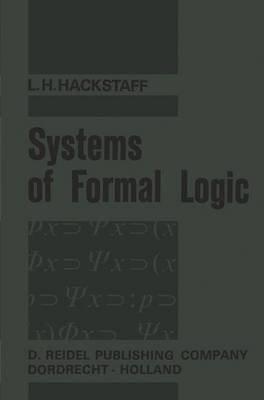The present work constitutes an effort to approach the subject of symbol ic logic at the elementary to intermediate level in a novel way. The book is a study of a number of systems, their methods, their rela tions, their differences. In pursuit of this goal, a chapter explaining basic concepts of modern logic together with the truth-table techniques of definition and proof is first set out. In Chapter 2 a kind of ur-Iogic is built up and deductions are made on the basis of its axioms and rules. This axiom system, resembling a propositional system of Hilbert and Ber nays, is called P +, since it is a positive logic, i. e. , a logic devoid of nega tion. This system serves as a basis upon which a variety of further sys tems are constructed, including, among others, a full classical proposi tional calculus, an intuitionistic system, a minimum propositional calcu lus, a system equivalent to that of F. B. Fitch (Chapters 3 and 6). These are developed as axiomatic systems. By means of adding independent axioms to the basic system P +, the notions of independence both for primitive functors and for axiom sets are discussed, the axiom sets for a number of such systems, e. g. , Frege's propositional calculus, being shown to be non-independent. Equivalence and non-equivalence of systems are discussed in the same context. The deduction theorem is proved in Chapter 3 for all the axiomatic propositional calculi in the book.
- ISBN13 9789027700773
- Publish Date 31 July 1966
- Publish Status Active
- Publish Country NL
- Publisher Springer
- Imprint Kluwer Academic Publishers
- Edition 1966 ed.
- Format Hardcover
- Pages 372
- Language English
